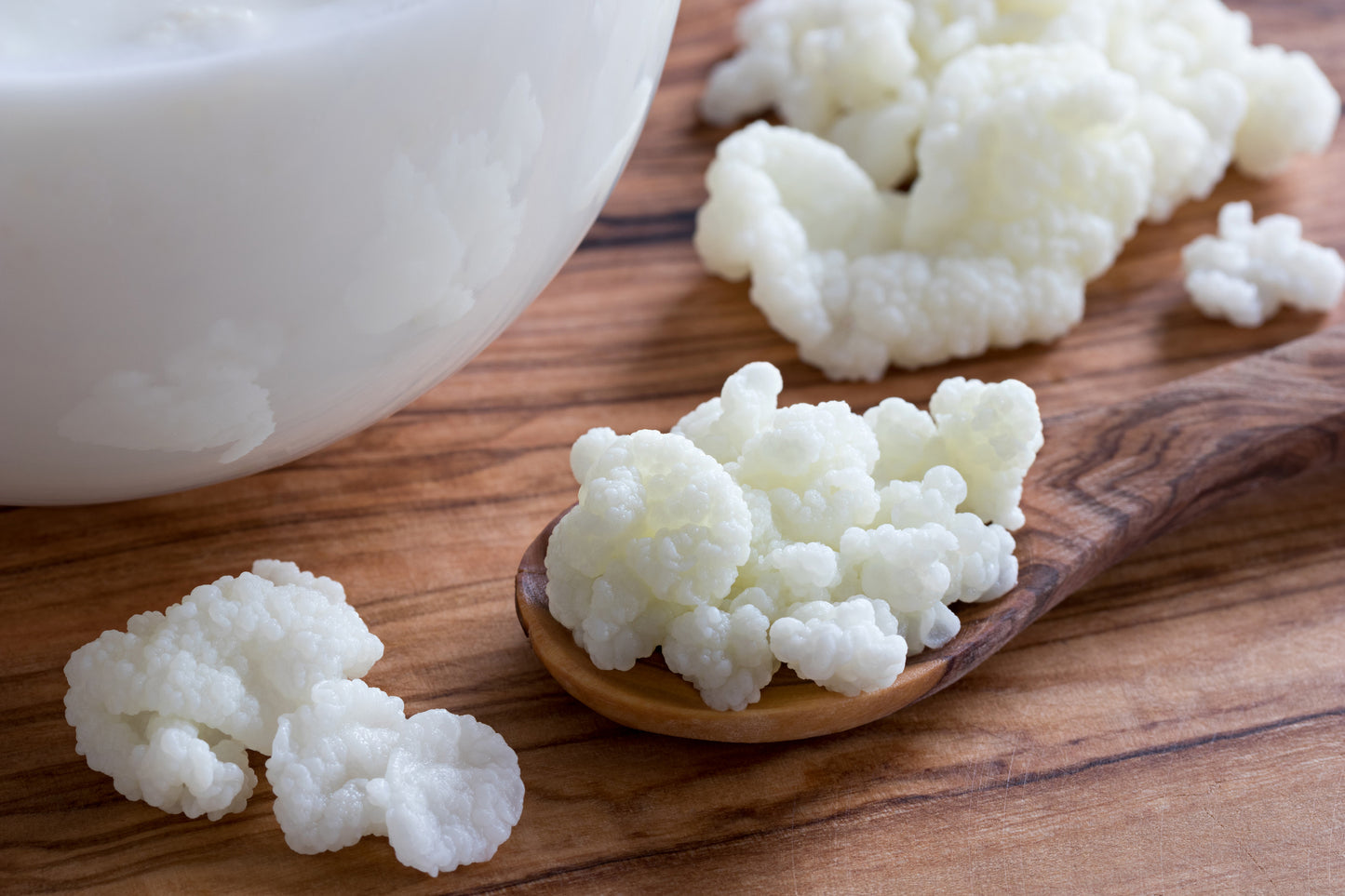
We’ve talked a lot about your gut biome - the ecosystem of bacteria and microorganisms that lives in your GI tract (gut). We’ve covered how to balance your gut bacteria for better performance and probiotics for muscle gain, weight loss, allergies, and more.
It turns out gut bacteria affect your thinking, too - so much so that researchers have begun to call the gut biome your second brain [1].
Let’s talk about how gut bacteria affect your brain, and how you can improve everything from mood to cognition by changing your gut biome.
In this article, you’ll learn about:
- The gut-brain axis: how your gut and brain talk to each other
- How your gut bacteria make you happy (or sad)
- Psychobiotics to improve anxiety and mood
The gut-brain axis: how your gut and brain talk to each other

The phrase “gut feeling” exists for a reason: your gut can pick up on stress, fear, elation, and a variety of other emotions as soon as they happen in your brain. That’s because you have a pathway called the gut-brain axis that allows your brain and gut bacteria to keep tabs on each other. It’s a direct line of communication between the two, and they talk to each other constantly.
The fact that your brain influences your gut is actually pretty intuitive. Have you ever gotten nervous and felt butterflies in your stomach? That’s the gut-brain axis at play. Thinking about food and feeling hungry a second later? Same deal. The way you think can affect your metabolism and digestion. Pretty cool, right?
What’s even cooler is that it works the other way, too: your gut can influence your brain. Your gut bacteria know about the gut-brain connection. They play around with mind control, releasing neurotransmitters and hormones that change the way you think. It begs the question: who’s controlling whom? Are you being run like a puppet by your gut bacteria?
Just kidding. Sort of. Your gut bacteria do have a surprisingly large sway over your brain, particularly when it comes to mood, cravings, stress, and anxiety.
With the right tools, you can change your gut bacteria to become a calmer, happier person. Before we get to that, let’s talk about how your gut bacteria influence your mood.
Your gut bacteria can make you happy (or sad)
Your brain cells communicate via chemicals called neurotransmitters. You may have heard of some of them:
- Dopamine affects motivation and pleasure
- Serotonin affects mood and sense perception
- GABA affects anxiety and stress
- Norepinephrine affects heart rate and arousal
- Acetylcholine affects muscle activation, learning, and memory
For decades, we’ve thought that neurotransmitters were unique to the brain, but recent research in mice and humans suggests that they aren’t. You have neurotransmitter receptors lining your gut, and your gut bacteria - sneaky little buggers that they are - produce a variety of different neurotransmitters that influence your brain activity.
For example, several bacteria from the Bacteroides and Bifidobacterium families produce serotonin in the gut [2,3]. Giving mice Bifidobacterium worked better than Lexapro (an antidepressant and anti-anxiety drug) at decreasing anxiety and depression [4]. Mice given bacteria that influence GABA show similar improvements - they handle stress and anxiety better [5].
And it’s not just mice. Women who took specific probiotics for four weeks became better at emotional processing. Brain scans confirmed that the parts of their brain related to emotional control lit up more after they took the probiotics [5].
In another study, people ate probiotic-rich yogurt for three weeks; at the end, those who started the study depressed reported significantly increased happiness and mood [6].
In yet another study, men and women who took probiotics became more resilient to stress and were less anxious under pressure [7].
The flip side is true, too: people with dysbiosis (an imbalanced gut) show symptoms of depression, anxiety, and even autism [8] (while we’re talking about it, here’s a guide to dysbiosis and rebalancing your gut).
Basically, gut bacteria can influence your happiness and stress response in a surprisingly significant way. A few specific species seem to have the most effect. Let’s talk about them.
Psychobiotics to improve anxiety and mood
You’ve probably heard of probiotics - bacteria that improve your gut health. You may have heard of prebiotics, too - types of fiber and starch that feed good gut bacteria.
Now there are psychobiotics: probiotic bacteria specifically chosen to improve your brain function, and in particular mood, anxiety, and stress response. Research on psychobiotics is still young, but a few bacterial species show promise as ways to improve your brain function.

The takeaway here?
Research is still young, but it seems bacteria from the families Bifidobacterium and Lactobacillus interact with your brain to make you more resilient to stress, depression, and anxiety. And given their other probiotic benefits, it seems like supplementing your diet with these two species can give you a major performance upgrade. You can find Bifidobacterium and Lactobacillus in several sources:
- Ample (read about the probiotics in Ample here)
- Probiotic yogurt (just be sure you check for added sugar and artificial coloring/flavoring)
- Kefir (a deliciously tart fermented milk product, pictured above)
- Sauerkraut
- A quality probiotic supplement (they list specific species on the back)
Have you taken psychobiotic bacteria before? Notice any benefits? Did we miss any good sources? Let us know in the comments. Thanks for reading!

Thanks for writing Conor. I find the connection between the gut microbiome and the brain fascinating. I’ve been enjoying Ample K for several weeks now, and I appreciate how much thought you put into what goes in it.